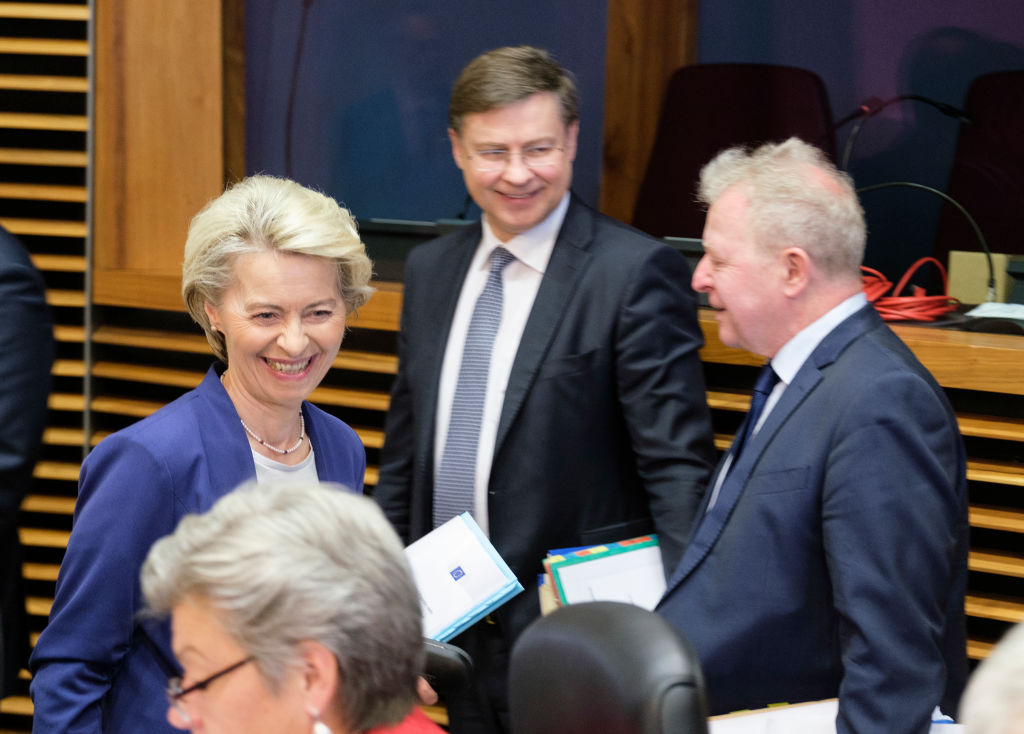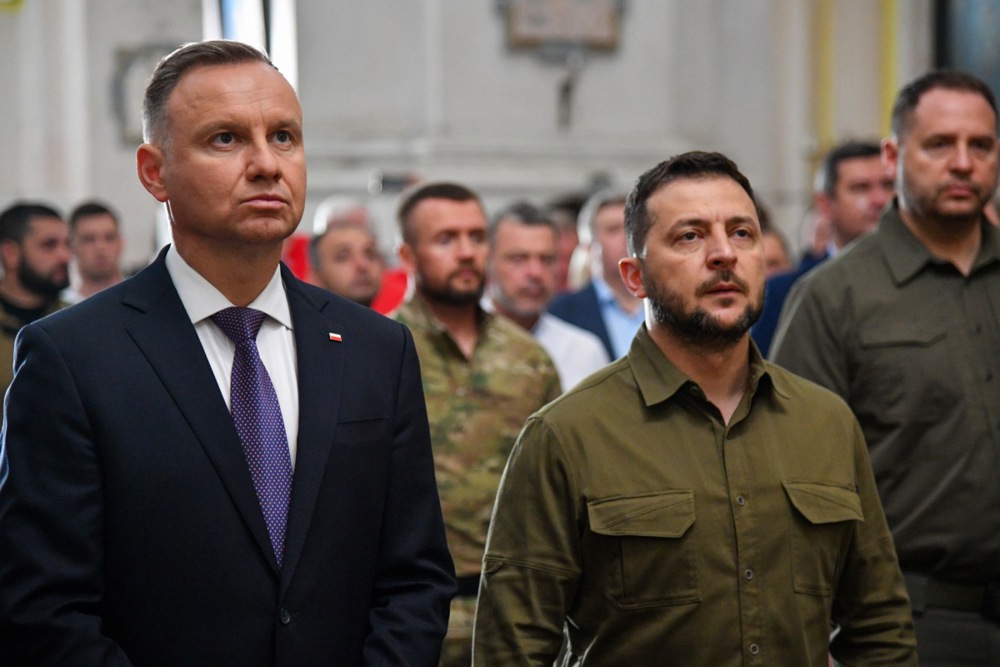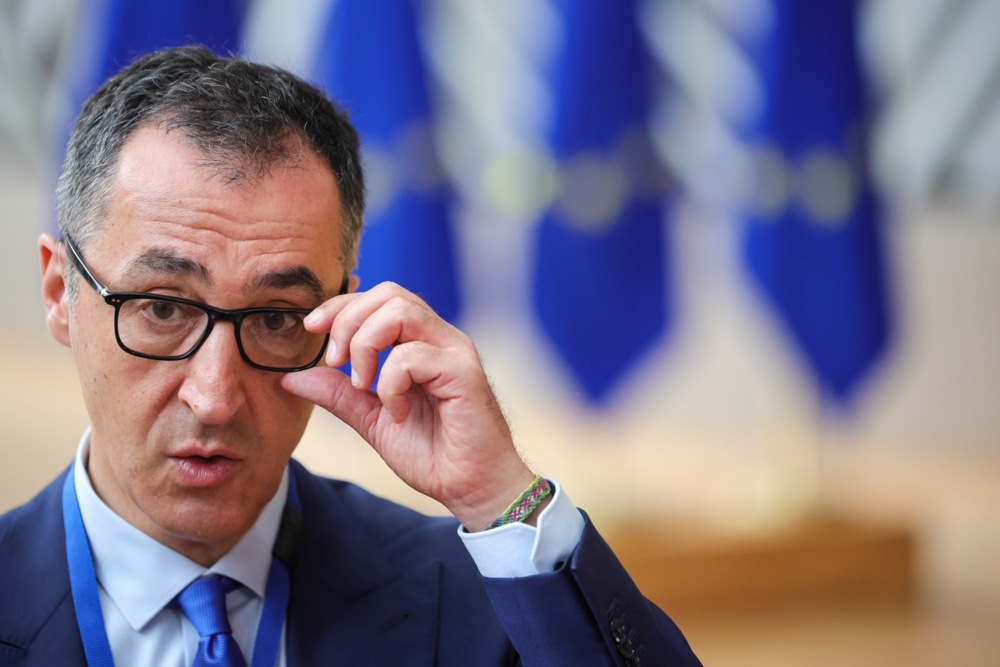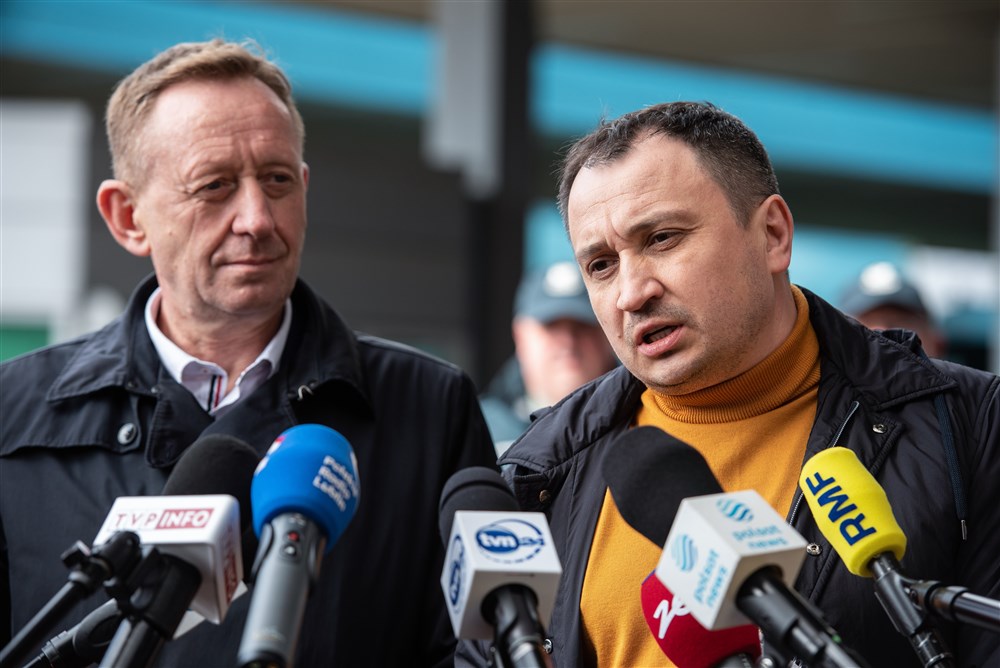Ukrainian President Volodymyr Zelenskyy has thanked European Commission President Ursula von der Leyen for her efforts aimed at ending the grain embargo in five neighbouring European Union Member States.
At the same time the Polish agriculture minister Robert Telus has accused the EC of trying to destabilise Poland if it does not prolong the embargo beyond September 15. It was originally to operate until June but was extended by four month.
Zelenskyy took to X, formerly Twitter, to publish a tweet clearly aimed at putting pressure on von der Leyen to deliver on her efforts to end the grain embargo operating in Poland, Slovakia, Hungary, Romania and Bulgaria.
“I met with @VonderLeyen to thank her for her efforts to normalize Ukraine’s agricultural exports and transit. It is important to fully restore them since September 15th. ” he wrote.
The Ukrainian grain embargo began in the spring of 2023 when the EC reached an agreement with the five neighbouring EU Member States allowing them to stop the import of grain products from Ukraine. The move was triggered by farmers’ protests in Poland, which led to the resignation of then-Polish agriculture minister Henryk Kowalczyk.
Polish Prime Minister Mateusz Morawiecki in July warned that should the EC fail to extend the embargo his country would continue it unilaterally, defying EU law. Since then Ukrainian Prime Minister Denys Shmyhal has accused Poland of adopting a hostile posture towards Ukraine and said Kyiv would insist the EU ensure his country had full access to all EU markets.
When Polish President Andrzej Duda’s chief aide Marcin Przydacz said Ukraine should show more understanding for Poland’s position in the grain dispute as it had provided extensive military, humanitarian and diplomatic aid for Ukraine, Kyiv reacted harshly, summoning the Polish Ambassador in Ukraine Bartosz Cichocki to explain.
The Ukrainian case for grain to flow freely into Poland is supported by Germany and other EU Member States. Telus has accused the EU of wanting to use Ukrainian grain imports to “destabilise” Poland ahead of October’s parliamentary elections and called the refusal to extend the embargo as a “purely political decision” and that the issue was being used “as part of a partisan struggle”.
Telus was referring to the fact that top EC and European Parliament politicians have made no secret of the fact that they want to see a change of government in Warsaw. As such, the Polish elections were becoming part of a broader struggle, observed the minister.
“These are very important elections for Poland, but also for Europe, because the narrative in Europe is changing completely: right-wing narratives are starting to win and this leftist policy of the EU is starting to lose,” he said.
Former Polish agriculture minister Jan Krzysztof Ardanowski said the EC was largely to blame for the grain crisis in Poland. “The European Commission is behaving like Pontius Pilate and washing its hands of the matter, passing it onto the Member States and making symbolic gestures such as inadequate compensation payments,” he said.
He added that Poland has been left with the problem because the EC has refused to help Member States with exporting grain to Africa and the Middle East. Ardanowski said Poland does not have the logistic capability to export Ukrainian grain abroad, and the situation is being made worse by Russia’s decision to end its grain deal with Ukraine.
The Polish Government fears further farmers’ protests should the grain embargo be lifted and Ukrainian grain pour uncontrollably into the country. It is lobbying Brussels to extend the embargo until the end of the year and for measures to reduce the costs of grain transit through the EU in order to make Ukrainian exports to Africa and the Middle East via ports in EU Member States more economically viable.
MEP Zbigniew Kużmiuk, from Poland’s ruling PiS party, told Polish public radio on August 25 that the EC is now working on a scheme that would provide funding to Ukrainian producers providing they use it to export the grain beyond the EU.
It is unclear at this stage if that is designed to soften the blow for Ukraine of the embargo being extended or to placate Poland over the embargo being removed.





